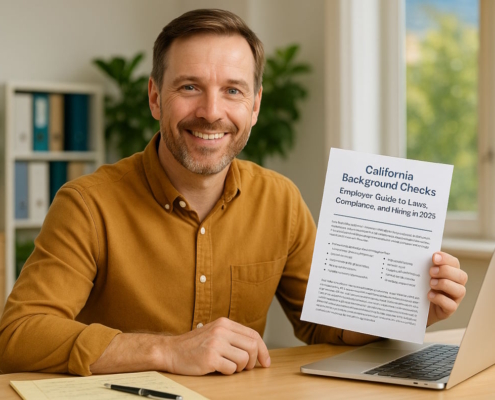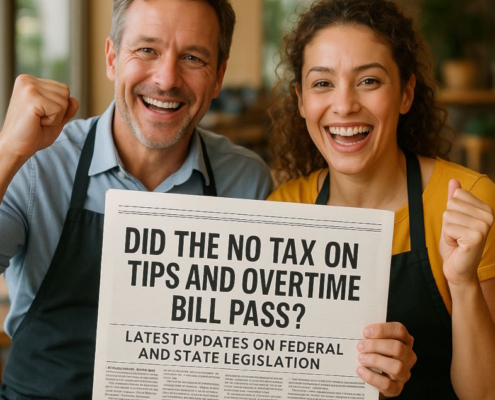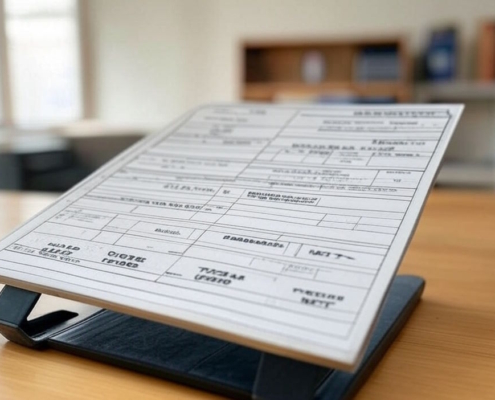California Meal and Rest Break Laws
California rest break laws, lunch breaks law, and lunch break laws require that employees are given a thirty-minute break every five hours worked. In California, a business is not allowed to hire someone without giving them a lunch break every five hours. The terms “lunch breaks” and “lunch breaks” are used interchangeably.
Under California lunch break laws, when an employee works for longer than five hours, that worker must be allowed a lunch break within that time. When an employee works over 10 hours, they have to get a second break within the second five-hour work break. A situation where this is not the case is when there is a written agreement between an employee and employer. Also, the motion picture industry has different guidelines when it comes to this.
How Many Hours Do You Have To Work To Get A Lunch Break?
A 30-minute lunch break is required for anyone who works 5+ hours. You cannot employ someone for a work period of more than five hours without providing an unpaid, off-duty meal period of at least 30 minutes. If you work 8 hours or so, you should have a separate rest break both before and after your lunch break. The only caveat here is that an employee would have to work over six hours in a given day. When employees work over 10 hours, they are entitled to another half-hour lunch break. The one caveat here is that the employee would have to work at least 12 hours.
Example
If John starts work at 8 AM, he must be allowed a lunch break within the first five hours of his shift. Under California lunch break laws, when an employee works for longer than five hours, that worker must be allowed a lunch break within that time. For example, John would need to take his 30-minute lunch break by 1 PM to comply with the law. If John continues to work beyond 10 hours, he must also be given a second lunch break within the second five-hour work period.
If your boss is violating your rights to a lunch break, you’re entitled to unpaid missed lunch break and possibly up to $50,000 in late unpaid wage and penalties. Our employment attorney can help you get your money with no up front costs. We charge a small contingent fee of the amount recovered for you.
Can I Work 6 Hours Without a Lunch Break in California?
No, in California, an employer may not require an employee to work for more than five hours without a lunch break. In California, rest break laws, lunch break laws, and meal period regulations ensure employees are provided a thirty-minute break every five hours worked. The law specifies that an employer cannot employ someone for a work period of more than five hours without providing an unpaid, off-duty meal period of at least 30 minutes.
Example
Under California lunch break laws, when an employee works for longer than five hours, that worker must be allowed a lunch break within that time. If an employee works over 10 hours, they are entitled to a second break within the second five-hour work period. However, if the total workday is no more than six hours, the meal period may be waived by mutual consent of both the employer and employee.
For example, if John starts work at 8 AM, he must be allowed a lunch break within the first five hours of his shift. John would need to take his 30-minute lunch break by 1 PM to comply with the law. If John continues to work beyond 10 hours, he must also be given a second lunch break.
Exceptions and On-Duty Lunch Breaks
There are instances where a lunch break is considered “on duty,” such as when an employee’s role bars them from taking an uninterrupted break. This requires a written agreement between the employee and employer, acknowledging the arrangement. For example, if John works at a small coffee shop as the only employee on duty, his lunch break would be considered “on duty,” and his employer is obligated to compensate him at his regular rate.
Consequences for Missed Lunch Breaks
When an employer does not give the allotted lunch break to their employees, there is a penalty. Employers must pay for an extra hour at the normal rate an employee gets paid at for each day the required meal period is not provided. If an employee works through their lunch break without being relieved of duties, this time must also be compensated.
Understanding Employee Rights
Employers are not allowed to dissuade employees from taking their allotted lunch breaks. An employer has to let an employee stop working entirely during a lunch break and provide them the time to enter and exit their place of work at their leisure. For example, if Sarah works a seven-hour shift, she is entitled to a 30-minute break because she worked over five hours.
What can you do when you’re not you’re working 6 hours without a lunch break?
If your employer is violating your right to a lunch break, you may be entitled to recover unpaid missed lunch break wages and potentially up to $50,000 in late payment wages and penalties. Our experienced employment attorneys are here to help you claim what you’re owed with no upfront costs. We work on a contingency fee basis, meaning we only charge a small percentage of the amount recovered on your behalf.
How early can I take my lunch break California?
Under California lunch break laws, when an employee works for longer than 5 hours, that worker must be allowed a lunch break within that time. You cannot employ someone for a work period of more than five hours without providing an unpaid, off-duty meal period of at least 30 minutes. Your employer is not required to give you a lunch break until you work
Example
If Jane starts her shift at 8 AM, her employer must allow her to take a 30-minute lunch break by 1 PM. According to California law, employees who work more than five hours must be provided with an unpaid, off-duty meal period of at least 30 minutes. If Jane continues working beyond 10 hours, she is entitled to a second lunch break within the next five-hour period.
California lunch Break Requirements
California rest break laws, lunch breaks law, and lunch break laws require that employees are given a thirty-minute break every five hours worked. In California, a business is not allowed to hire someone without giving them a lunch break every five hours.
What Constitutes a lunch Break?
An employer has to let an employee stop working entirely during a lunch break. They will also have to hand over that employee’s duties to someone else.
What is the consequences for missed lunch break?
When an employer does not give the allotted lunch break to their employees, there is a penalty of sorts. That means your boss has to pay for an extra hour at the normal rate an employee gets paid at. California Labor Code Section 226.7 requires employers to pay non-exempt employees an additional hour of pay for each meal or rest period the employer fails to give the employee a lunch break. For each workday that the employer fail to provide an employee a lunch break as required, the employer owes the employee one additional hour of pay at the employee’s regular rate. Employers should never dissuade employees from taking their allotted lunch breaks. An employer has to let an employee stop working entirely during a lunch break and provide them the time to enter and exit their place of work at their leisure.
On-Duty Lunch breaks
An employee must get paid if they work at any point during their half-hour lunch break. This sort of situation turns it into an “on duty” lunch break, which is considered as time worked. An employer will be obligated to compensate that employee at the rate they normally get paid at.
Exception for On-Duty Lunch Breaks
The only time a lunch break can be considered to be “on duty” is when there is no other choice but to work through it. There also would have to be a formally written agreement between a worker and their employer indicating this. An objective test is required to determine if the kind of work someone is doing bars them from taking a break. If it does, they would be unable to take a lunch break. An example of this would be a solitary person working at a coffee shop.
Example
John works at a small coffee shop where he is the only employee on duty during his shift. Due to the nature of his job, he cannot leave the premises for a break, as the shop must remain open and staffed. In this situation, John’s lunch break would be considered “on duty” because there is no other option but for him to work through it.
Since John’s break is classified as “on duty,” his employer is required to compensate him at his normal hourly rate for the duration of the break. Additionally, there must be a formally written agreement between John and his employer that acknowledges this arrangement. The determination of whether John can take a lunch break is based on an objective test, which considers whether his job duties make it impossible to step away. In John’s case, the nature of his role as the sole worker meets the criteria for an on-duty lunch break.
Written Agreement for On-Duty Lunch breaks
An “on duty” lunch break law is allowed when the work someone is doing bars them from being able to take their allotted break. It is also allowed when an employee and employer have a written agreement that says they will get paid for lunch break. This agreement has to say that the worker is allowed to render the agreement null and void, in writing.
Example
Maria works as a security guard at a high-security facility, earning $20 per hour. Due to the nature of her responsibilities, she cannot step away from her post for a traditional lunch break, as constant monitoring is required.
To address this, Maria and her employer sign a written agreement stating that her lunch breaks will be considered “on duty,” meaning she will be compensated at her regular hourly rate of $20 during those breaks. For example, if Maria works an 8-hour shift, including a 30-minute “on duty” lunch break, she will be paid for the entire 8 hours, earning $160 ($20 × 8 hours).
The agreement also includes a clause that allows Maria to revoke the arrangement in writing at any time, should her situation or preferences change. This ensures compliance with the law, as Maria’s duties make it infeasible for her to take a standard lunch break, and the written agreement safeguards her right to compensation and her ability to cancel the agreement.
This setup ensures Maria is fairly compensated while adhering to the legal requirements for on-duty lunch breaks.
Test for Lunch break Feasibility
There is a test to determine if a worker is able to stop working to take a lunch break. It has to be based on objective criteria to ensure that an employee is able to take the break. There are some jobs where it would not be possible for an employee to take such a break. These are generally positions where only one person is fulfilling duties, such as a single worker at a coffee shop.
Example
Liam works as the sole cashier and barista at a small coffee shop during the early morning shift. The shop stays busy with a constant stream of customers, and there is no other employee available to cover for him if he steps away.
Using the test for lunch break feasibility, it is clear that Liam’s role prevents him from taking an uninterrupted lunch break. The objective criteria for this determination include the fact that he is the only person staffing the shop and that the duties of his position—serving customers and handling transactions—cannot be paused without disrupting operations.
Because it is not feasible for Liam to take a break, his employer must classify his lunch break as “on duty” and ensure he is compensated for the time, provided there is a written agreement in place that meets all legal requirements.
Payment for Lunch break Violations
An employee is required to get paid when they stay at the location of their occupation for break. Regardless of whether that person is working or not, they have to get paid. When an employer does not give the allotted lunch break to their employees, there is a penalty of sorts. They have to pay for an extra hour at the normal rate an employee gets paid at. This holds true for every day that these California break laws are not given. This extra time will then get factored into overtime pay.
Example
Samantha works an 8-hour shift at a retail store and is paid $20 per hour. However, her employer frequently fails to provide her with the required 30-minute, uninterrupted lunch breaks. Since Samantha is required to remain on the sales floor during her breaks and cannot leave the premises, she must be compensated for her breaks. Additionally, because her employer is violating California’s lunch break laws, Samantha is entitled to penalty pay.
Under California law, her employer must pay Samantha an additional hour at her regular rate of $20 for each day a lunch break is not provided. For instance, if this violation occurs for five workdays in a week, Samantha is owed an extra $100 ($20 × 5 days) in penalty pay for that week.
If Samantha’s total hours worked, including the penalty hours, exceed 40 hours in a week, the additional time must be factored into her overtime pay calculation. For example:
- Without lunch break violations, Samantha works 40 hours, earning $800 ($20 × 40 hours).
- With five lunch break violations, she earns an additional $100 in penalty pay, bringing her total pay to $900.
- If these violations push her total hours to 45 (40 regular + 5 penalty hours), she is entitled to overtime pay for the 5 additional hours.
- Overtime is calculated at 1.5 times her hourly rate, or $30 per hour. For 5 overtime hours, Samantha would earn an extra $150 ($30 × 5 hours).
In total, Samantha’s paycheck for that week would amount to $1,050 ($800 regular + $100 penalty + $150 overtime). This ensures she is fairly compensated for both the missed breaks and any resulting overtime.
Requirements for Break Locations
At work locations where workers have to eat, there needs to be some place that they can reasonably eat. The exceptions to this are if the work site involves construction, drilling, logging, or mining. In these situations, drinking water, cleaning products, and paper towels need to be provided, at the very least.
Example
James works at a warehouse where employees are required to remain on-site during their lunch breaks. To comply with the law, the employer has designated a break room equipped with tables, chairs, and basic amenities, providing workers with a reasonable place to eat during their breaks.
In contrast, Emily works at a remote construction site where it is not feasible to provide a dedicated eating area. In this case, the employer ensures compliance by providing essential amenities such as drinking water, cleaning supplies, and paper towels. These provisions allow Emily and her coworkers to maintain hygiene and meet their basic needs, even without a designated eating space.
Both scenarios illustrate how employers can meet legal requirements for providing appropriate accommodations for lunch breaks, tailored to the nature of the work environment.
Requirements for Night Shift Lunch breaks
Generally speaking, when a lunch break takes place between 10 PM and 6 AM, there are extra requirements. There needs to be a place for an employee to get hot food or a hot beverage. Alternatively, the location for taking a break should provide a means of heating up food or a beverage. Having a microwave available for use is an easy way to ensure that these rules are followed. In the motion picture industry, hot food and hot beverages have to be offered to people working past 12 AM. The exception to this rule is in the case of off-production workers, who are usually supposed to work past 12 AM.
Example
Sophia works the night shift at a 24-hour customer service center, from 10 PM to 6 AM. During her lunch break, which typically occurs around midnight, the company ensures compliance with the night shift lunch break requirements by providing a break room equipped with a microwave and a coffee maker. This allows Sophia to heat up her food and prepare a hot beverage during her break.
In a different scenario, Liam is a lighting technician working on a film set. Because his work regularly extends past midnight, the production crew is required to provide hot food and hot beverages during his lunch breaks. A catering service is set up on location, offering options like soup, coffee, and warm meals to crew members.
An exception applies to Maya, an off-production worker in the same industry, whose regular schedule involves working past 12 AM. In her case, the employer is not obligated to provide hot food or beverages, as her role does not fall under the same requirements for production workers.
These examples illustrate how night shift lunch break requirements differ based on the nature of the work and the industry.
How Does an Employer Have to Give Lunch breaks?
An employer has to let an employee stop working entirely during a lunch break. They will also have to hand over that employee’s duties to someone else. Finally, they have to give them a half-hour break, without any interruptions. During this time, the employee will have to be allowed to enter and exit their place of work at their leisure.
Employers should never dissuade employees from taking their allotted lunch breaks. This means they are not allowed to pressure workers to work in a way that gets rid of their California break laws.
Example
Emma works as a cashier at a busy grocery store. When her lunch break is due, her employer must completely relieve her of her duties for the entire 30-minute period. This means another cashier is assigned to cover Emma’s station during her break.
During the break, Emma is free to leave the premises, whether to grab food from a nearby café or simply take a walk. The employer ensures that her break is uninterrupted and does not call her back to the register for any reason until her break is over.
Additionally, Emma’s manager never discourages her from taking her legally required breaks. For instance, even during peak hours, the manager ensures all employees take their scheduled breaks and does not pressure them to stay at their stations to meet customer demands. This adherence to California break laws ensures that Emma and her coworkers have the opportunity to rest and recharge during their shifts.
What Can an Employee Do When an Employer Prohibits Them From Taking a Lunch break?
When an employer is not allowing an employee to take the allotted lunch break due, the employee may sue the employer. They will have to pay the equivalent to an hour of pay at an employee’s normal rate. This holds true for every single day an employee is not given their lunch break (lunch break). If an employer does not follow through with the required payments, a wage claim can be filed against them.
Example
David works as a warehouse associate, earning $22 per hour. Despite California law requiring a 30-minute lunch break for shifts longer than five hours, David’s manager frequently prohibits him from taking his breaks, citing high workloads and tight deadlines.
After several weeks of missed lunch breaks, David decides to take action. Under California law, his employer owes him an additional hour of pay for every day he was denied his lunch break. If David worked five days a week for four weeks without taking a break, the employer would owe him $440 ($22 × 20 missed breaks).
When David raises this issue with his employer, they refuse to compensate him for the missed breaks. Frustrated and seeking justice, David contacts attorney Brad Nakase, a specialist in wage and hour claims. Brad helps David file a wage claim with the California Labor Commissioner’s Office and initiates a lawsuit against the employer for ongoing violations of California’s lunch break laws.
With Brad’s expertise, David pursues not only the compensation for his missed breaks but also penalties for the employer’s failure to adhere to the law, ensuring accountability and fair treatment.
No, they do not. There is no extra pay that an employer needs to pay when an employee was officially relieved of their duties. However, if an employer is aware that one of their employees is working through their lunch break (lunch break), they will be required to pay extra. This includes any overtime that may have been generated during the time an employee worked the lunch break (lunch break).
Example
Laura works as a data entry specialist and earns $18 per hour. Her employer officially provides a 30-minute lunch break during her 8-hour shift and relieves her of all duties during this time. However, Laura occasionally chooses to work through her break to meet deadlines, even though her employer has reminded her she is free to take her break. In this case, the employer does not owe Laura extra pay because she was officially relieved of her duties, and her decision to work was voluntary.
On a different occasion, Laura’s manager notices that she is consistently working through her lunch breaks and does not intervene to stop her. If Laura works through these breaks with her employer’s knowledge, the time is considered compensable, and her employer must pay her for the extra 30 minutes worked at her regular hourly rate of $18.
If this additional time pushes Laura’s total hours worked beyond 40 hours in a week, the employer must also compensate her for overtime at a rate of $27 per hour (1.5 times her regular rate). For example, if Laura works through her lunch break for five days in a week, that adds an extra 2.5 hours of work. If this causes her total hours to reach 42.5, the employer would owe her:
- 40 hours at her regular rate = $720
- 2.5 hours of overtime = $67.50 ($27 × 2.5)
In total, Laura would earn $787.50 for the week. This ensures compliance with wage and hour laws when an employer allows an employee to work through lunch breaks.
Are You Allowed to Leave Work Half an Hour Early If You Don’t Take a Lunch break?
No, you are not. Just because an employee decides to work through an allotted lunch break does not mean an employee can leave work earlier. There is one instance where an employee is allowed to work through a lunch break (lunch break). This is when what an employee is working on bars you from ceasing work completely. In this case, you need to have a written agreement between yourself and your employer. This agreement also needs to say that you are allowed to revoke it, whenever you want to.
Example
Mark works an 8-hour shift as a graphic designer and earns $25 per hour. One day, he decides to skip his 30-minute lunch break to meet a tight project deadline and asks his employer if he can leave work 30 minutes early instead. His employer informs him that this is not allowed under labor laws. Lunch breaks are mandatory, and skipping one does not entitle Mark to leave work earlier.
However, there is one situation where Mark could legally work through his lunch break. If Mark’s role required him to continue working without interruption—such as during a live design presentation or a time-sensitive project where no break is feasible—he could agree to an “on duty” lunch break. To formalize this arrangement, Mark and his employer would need to sign a written agreement specifying the conditions of the on-duty lunch break. The agreement would also need to include a clause allowing Mark to revoke it at any time in writing.
Without such an agreement in place, Mark is required to take his lunch break and cannot use it as a reason to shorten his workday. This ensures that employees comply with labor laws while protecting their right to rest during the workday.
Can an Employer Demand an Employee Stay Onsite for a Lunch break?
Yes, they can. This is true even if an employee does not have to work during your lunch break. However, when this is the case, an employee is not being allowed to have time personal time, which means the employee must get paid. There are some exceptions for lunch breaks however, which involve people working in the healthcare industry. In any case, there has to be a location onsite that allows for eating and drinking to be done without any issues. More specifically, this means that there has to be a place provided where someone can get hot meals or hot beverages. Alternatively, employees should have the ability to heat the meal or beverage.
Example
Anna works as a receptionist at a large office building. Her employer requires her to stay onsite during her 30-minute lunch breaks, even though she is relieved of all duties during this time. Since Anna is not allowed to leave the premises for personal time, the employer is required to pay her for the duration of her break, even if she is not working.
To ensure compliance with workplace lunch break rules, Anna’s employer provides a break room with a microwave, coffee maker, and seating area where employees can eat and drink comfortably. This arrangement meets the requirement for providing a designated space for lunch breaks.
In contrast, David works as a nurse in a hospital. Due to the nature of his job, he is sometimes required to remain on duty during his lunch breaks. In these cases, his employer provides him with hot meals and beverages as required for healthcare workers who are unable to leave their work areas.
These examples demonstrate how lunch break policies vary depending on whether employees are required to stay onsite and the specific industry they work in, while ensuring compliance with labor laws.
If An Employee Works for Eight Hours Without a Given Lunch break, What Can the Employee Do?
If an employee finds herself working without a lunch break or lunch break, the employee may file a wage claim with the office of the Labor Commissioner. Alternatively, you can sue your employer to get back what was not rightfully given to you. This includes an hour of extra pay for each day you were withheld a lunch break.
Example
Sophia works as a customer service representative, earning $20 per hour. Despite working eight-hour shifts, her employer regularly fails to provide her with a 30-minute lunch break. Over the course of a month, Sophia works 20 shifts without taking a break.
Under California labor law, Sophia is entitled to one additional hour of pay for each day her lunch break was withheld. This means her employer owes her $400 ($20 × 20 missed breaks).
Frustrated and unsure of her rights, Sophia decides to seek legal help. She contacts attorney Brad Nakase, an experienced employment lawyer, to assist her in addressing the issue. Brad helps Sophia file a wage claim with the California Labor Commissioner’s Office and explores the option of a lawsuit against her employer to recover the missed lunch break pay and any associated penalties.
With Brad Nakase’s guidance, Sophia gains confidence that her rights will be upheld, and she will be compensated for the time her employer failed to provide her legally mandated lunch breaks.
What Is the Longest You Can Wait to File a Wage Claim for Lunch break Laws Violation?
There is a statute of limitations when it comes to filing a wage claim for a lunch break. Currently, it is three years from the moment a potential lunch break violation has occurred. This means that a claim has to be filed within those three years. If you do not, you will not receive any sort of due compensation.
Example
Michael worked as a delivery driver for a logistics company and frequently missed his legally required lunch breaks due to the demands of his job. He left the company two years ago but recently learned that he might be entitled to compensation for the missed breaks.
Michael contacts an employment lawyer to inquire about filing a wage claim. The lawyer informs him that California law allows employees to file claims for lunch break violations within three years from the date the violation occurred. Since it has only been two years, Michael is still within the statute of limitations and can proceed with filing his claim.
If Michael had waited longer than three years, his claim would no longer be valid, and he would not be entitled to compensation. By acting within the allowable time frame, Michael ensures he can recover the wages owed to him for the lunch breaks his employer failed to provide.
What Is the Process to Follow Once a Lunch Break Laws Violation Has Been Filed?
After you file your claim for lunch breaks violations, it will be relayed to the Deputy Labor Commissioner. The Deputy Labor Commissioner will determine lunch break violations after taking several things into consideration. They will review the circumstances of the lunch break violations claim. The Deputy Labor Commissioner will also consider what the best course of action would be to take for the lunch break violations. There may be a referral to a conference or hearing for lunch break violations, or the claim will be dismissed.
The Conference Process
If the lunch break claim goes to a conference, both the employee and employer will receive a notice in the mail. This notice will provide the time and date of the scheduled meeting. This event helps ascertain whether a wage claim is valid or not. Additionally, it is the focus of this meeting to figure out whether an agreement can be reached without a hearing. If there is no resolution within a conference, then one of two things can happen. Either there will be a movement of the wage claim to a hearing, or the claim will be dismissed. A dismissal is usually done because there is not enough evidence supporting the lunch break wage claim.
The Hearing Process
When a lunch break claim moves forward to a hearing, the employee and employer have to testify under oath. Everything said during the hearing is recorded, as a matter of official record. Upon the completion of a hearing, there is one of three results: Order, Decision, or Award.
What Can Be Done If An Employee Succeeds in a Hearing But an Employer Does Not Pay or Appeal?
There may sometimes be a situation where an ODA favors an employee, without an appeal, yet an employer withholds paying the ODA. In a case like this, the DLSE has the right to place the ODA as a judgment against an employer. This holds the same weight as anything the court would have decided. There is also the option to retrieve the judgment on your own, or ask the DLSE to do it for you.
What Can Be Done When an Employer Retaliates Against an Employee Asking for Their Lunch break?
If an employer retaliates just because you asked why you were not given a lunch break, you can file a complaint. Discrimination and retaliation by an employer towards an employee is illegal. You should file a complaint with the office of the Labor Commissioner as soon as possible. Your other option is to file a lawsuit regarding your employer’s illegal behavior.
Example
Jessica works as a retail associate and frequently notices that her employer does not allow her or her coworkers to take their required 30-minute lunch breaks. One day, Jessica approaches her manager and asks why she has not been given her lunch breaks. In response, the manager reduces her hours and assigns her less favorable shifts, clearly retaliating against her for raising the issue.
Jessica recognizes that her manager’s actions are illegal under California labor laws, which prohibit retaliation against employees for asserting their rights. Unsure of how to proceed, Jessica contacts employment attorney Brad Nakase for assistance. Brad listens to her situation and explains her options for addressing the violations and retaliation.
With Brad Nakase’s help, Jessica files a complaint with the California Labor Commissioner’s Office, detailing her employer’s failure to provide lunch breaks and the retaliatory actions taken against her. Additionally, Brad helps Jessica file a lawsuit against her employer, seeking compensation for lost wages, emotional distress, and any other damages caused by the illegal behavior.
By working with Brad Nakase, Jessica takes confident steps to protect her rights and hold her employer accountable for their unlawful actions.































